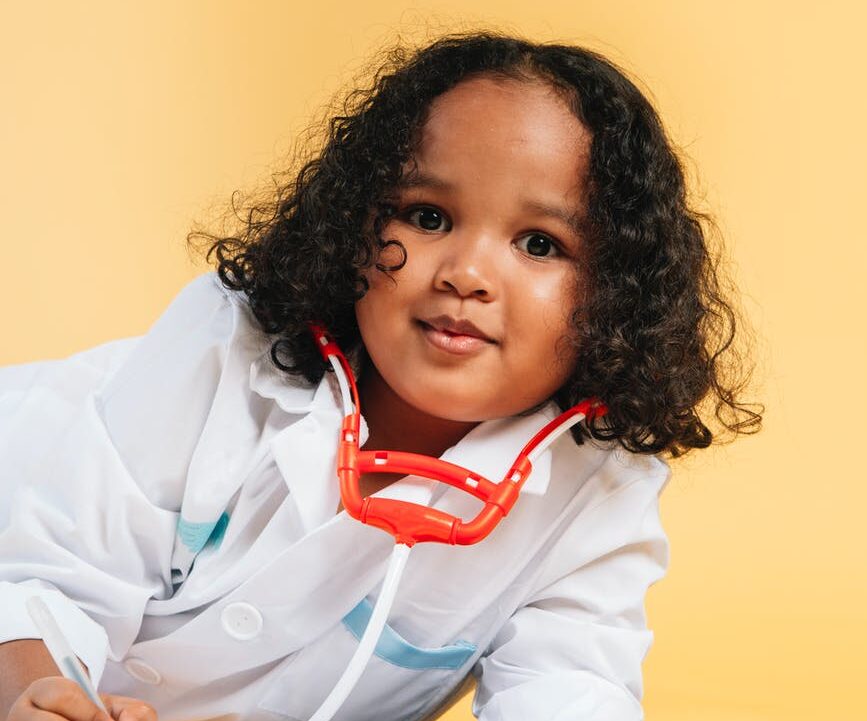While your newborn having an undescended testicle might come as a shock, it is not a huge cause for concern. This occurs in about 4% of infant males when, while growing inside the womb, the testicles develop inside of his abdomen and fail to move down into his scrotum.[1]
The solution is a simple one: surgery. Treatment for a undescended testicle is an orchiopexy procedure that requires either a laparoscopy or open surgery with general anesthesia. This type of procedure has a 95% success rate.[2]
Why Would My Child Infant Need Testicle Surgery?
Undescended testicles are a result of an infant male’s testicles, after developing in his abdomen, failing to drop into his scrotum while he is growing inside his mother’s womb. Your doctor can diagnose undescended testicles by examining the child.
While undescended testicles aren’t inherently harmful, the complications from them can be. Infertility and testicular cancer are the main issues that males with undescended testicles can face later in life if an orchiopexy isn’t performed within 18 months after birth.
However, it’s recommended that you see a specialist or pediatric surgeon if your son’s testicle hasn’t descended or can’t be located within 6 months after birth.
If it’s determined that there are no testicles at all versus undescended testicles, diagnosis immediately after birth can help prevent conditions that result from absent testicles. That’s why seeking out a surgeon you can trust early on can lower the risk of complications and give you peace of mind.
What is the Process for Infant Testicle Surgery for a Child?
Orchiopexy may require more than one surgery to repair. These surgeries are outpatient procedures, which means you can take your son home after surgery. But what happens during the procedures?
- Your son will undergo anesthesia so the surgery can be performed.
- Once your infant is asleep, their surgeon makes a small cut in his groin or may place a camera in the abdomen to find the testicle.
- The surgeon examines the undescended testicle to ensure it’s healthy.
- If necessary, a hernia sac repair might need to be done first.
- After any hernia is repaired, a second cut in the scrotum is made to create a pocket for the testicle to sit in.
- With a surgical tool, the surgeon pulls the undescended testicle down into the pocket they created.
- To finish, the surgeon secures the two cuts made with dissolvable stitches that dissolve after a week or two.
You and your son can go home about two hours after they undergo an orchiopexy procedure.
Pediatric Testicle Surgery: Questions to Ask the Surgeon
When it comes to your child, there are no questions you can’t ask. Let’s go over a few of the most common so you feel confident scheduling testicle surgery for your son.
How long do I withhold food for my son after surgery?
The reason it’s recommended to limit food post-op is due to the effects of the anesthesia used during the surgery. Start with clear liquids, and consider avoiding rich foods for the day after surgery to avoid nausea.
What is the recovery time after an orchiopexy?
Give your son 2-3 days after the procedure before he resumes daily activities. A few specific activities to avoid are jumping, running, and straddling toys like tricycles or rocking horses.
How do I control my son’s post-op pain?
Since an orchiopexy isn’t a major surgery, your son’s discomfort can be managed with over the counter medicine like aspirin, acetaminophen, and ibuprofen. Applying ice four times a day for at least 10 minutes can not only control pain, but limit swelling of his groin.
When do I need to call the doctor if I think something’s wrong?
There are 5 symptoms that make it clear it’s time to call your doctor after your son undergoes testicle surgery:
- Heavy bleeding
- A high fever
- Severe pain
- Severe swelling
- Infection
What signs of infection do I need to look out for?
An infection can indicate there is something wrong with the affected area. Signs to watch out for include pus or redness along the incision sites, a 101 degree or higher fever, and increased pain or swelling.
Does Your Child Need Testicle Surgery?
It’s recommended that you find a surgeon you can trust before treatment is needed. That’s because surgery for undescended testicles is best done immediately to prevent future complications.
If you’re looking for a pediatric surgeon who has experience with testicle surgery, Austin Pediatric Surgery has the best surgeons for the job.
Sources:
[2]: https://www.ncbi.nlm.nih.gov/pmc/articles/PMC4889701/
[3]: https://my.clevelandclinic.org/health/treatments/17297-orchiopexy
[4]: https://www.chop.edu/treatments/surgery-undescended-testicles-orchiopexy
Photo source: Pexels.com



